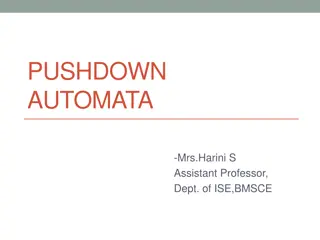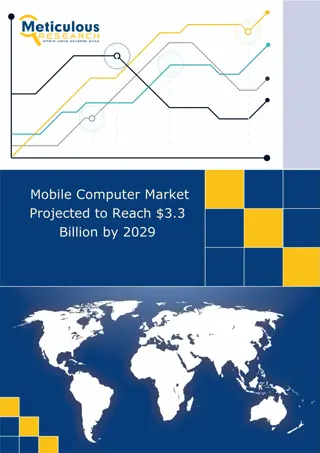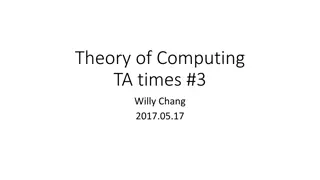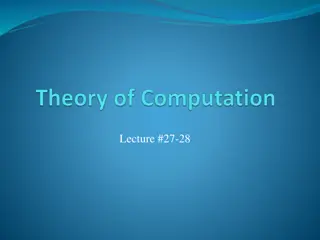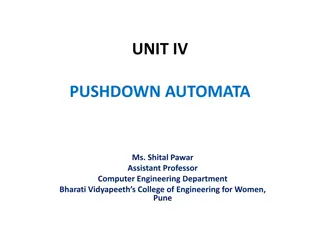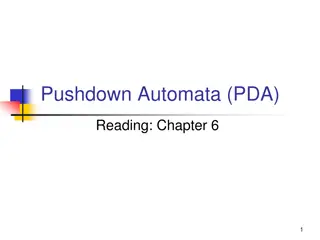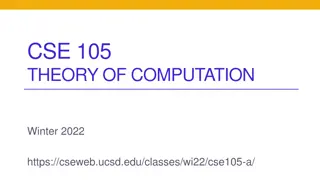Understanding Pushdown Automata and Language Acceptance
Pushdown Automata (PDA) provide a theoretical framework for recognizing context-free languages. In PDA, the acceptance of a language depends on reaching a final state or having an empty stack. This concept is illustrated through examples and the distinction between deterministic and non-deterministi
0 views • 10 slides
Evolution of Mobile Application Development Through the Years
Explore the timeline of mobile application development, starting from the emergence of embedded systems in mobile phones to the rise of major operating systems like iOS and Android. Witness the evolution of smartphones and PDA devices, leading to the current smartphone OS competition in the market.
0 views • 4 slides
Market for Mobile Computers Estimated to Reach $3.3 Billion by 2029
Meticulous Research\u00ae\u2014a leading global market research company, published a research report titled, \u2018Mobile Computer Market by Device Type (Key-based, Full-touch PDA-based, Rugged Tablet, and Software), Portability Type (Handheld, Weara
0 views • 3 slides
Theory of Computing TA Times #3 - Willy Chang
Explore insights on proof by construction, PDA handling, unambiguous grammar, Turing machines, and more in this TA session. Learn how to provide steady examples for proofs, avoid ambiguous grammar structures, and understand the equivalence of Turing machines with reset options.
0 views • 13 slides
Understanding the World Squash Federation Coaching Programme Level 1
The World Squash Federation Coaching Programme Level 1 focuses on improving coaching quality in squash globally. It emphasizes the importance of HOW to coach, incorporating a philosophy of Perception Decision Action (PDA) Process and Long-Term Player Development (LTPD). The programme equips candidat
0 views • 49 slides
Understanding Pushdown Automata (PDA) in Computer Science
Pushdown Automata (PDA) are essential in theoretical computer science, serving as an extension of non-deterministic finite automata (NFA). PDAs incorporate a stack, enabling them to recognize non-regular languages. They are described by transitions involving input symbols, state changes, and stack m
0 views • 46 slides
Understanding Pushdown Automata (PDA) in Computer Engineering
Pushdown Automata (PDA) is a powerful computational model that extends the capabilities of Finite Automata (FA) by incorporating a stack memory. PDAs can accept languages that FA cannot, making them essential in theoretical computer science. They consist of components like input tape, finite control
0 views • 59 slides
Understanding Pushdown Automata (PDA) for Context-Free Languages
Pushdown Automata (PDA) is a crucial concept in the theory of computation, specifically for the recognition of context-free languages. PDAs are an extension of nondeterministic finite automata (NFA) with an added stack memory. This summary provides insights into the definition, transition functions,
0 views • 34 slides
Theory of Computation: Winter 2022 Learning Goals and Examples
Exploring the theory of computation in the Winter 2022 CSE 105 course at UCSD, focusing on identifying sets of strings as regular, context-free, or neither. Learning about DFA, NFA, PDA, Turing machines, and computational power. Discovering specific non-context-free languages and exploring closure p
0 views • 24 slides
